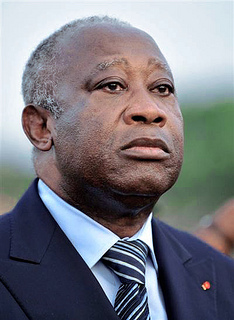Obama won, again. Americans were prepared for a long election night, and the potential for a repeat of the Bush versus Gore (2000) counting process. And, despite many (deepening) flaws in America’s democracy, Mitt Romney provided us another of democracy’s sweetest moments at the end of a hard-fought presidential election. Like the losing candidates before him, he conceded defeat and respected the rules of the game. In too many fledgling democracies and weak states, electoral losers do not accept defeat, even when it is legitimate.
Before we move on to challenges of democratization in developing countries, it is worth noting briefly the current challenges to democratic governance in the United States. It is important that Americans and others recognize that the U.S.A. is not necessarily the model democracy that it once was. Here are just a few of the key issues plaguing the American polity:
- The inability of Congress and the president to seek common ground on big issues facing the country.
- Rising incivility among citizens and elected officials alike.
- An electoral system awash in money, and the corrupting influence of that money.
- Gerrymandered legislative districts, leading to a disconnect between citizens and lawmakers, as well as a more polarized debate.
Although democracy in the United States is not in full health, respect for electoral process is alive and well. If only it were so in many transitional democracies of Africa and Asia.

The former president of Cote d’Ivoire refused to leave office in 2010 after his electoral defeat. Gbagbo’s intransigence led to additional armed conflict in this West African state. Photo credit: Paterne (Creative Commons license).
Why is accepting electoral defeat so difficult in new democracies? Let us count the reasons:
- Elections are often held under conditions that are not fair. Ruling parties often appoint biased officials who oversee voting. Media coverage is often slanted in favor of those in power. And so on.
- Electoral defeat in poor countries often leads to significant loss of income for losers. Mitt Romney will almost certainly make more money outside the White House. Not so for the elites who lose elections in many developing countries. Access to public offices – including the pay, perks, and potential for corrupt dealings – affords huge material opportunities for politicians.
- Electoral losers – both elites and ordinary citizens – may face persecution from the winning side.
In the recent decade, numerous states have descended farther into state weakness or failure after disputed elections. Notable cases include: Madagascar (2002), Zimbabwe (2008), and Cote d’Ivoire (2010).
On the other hand, principled and courageous politicians – such as those in Ghana – can sometimes choose sweet democratic moments, and gracefully concede defeat.
What are your thoughts about elections around the world? Could the international community do more to help electoral losers concede defeat?